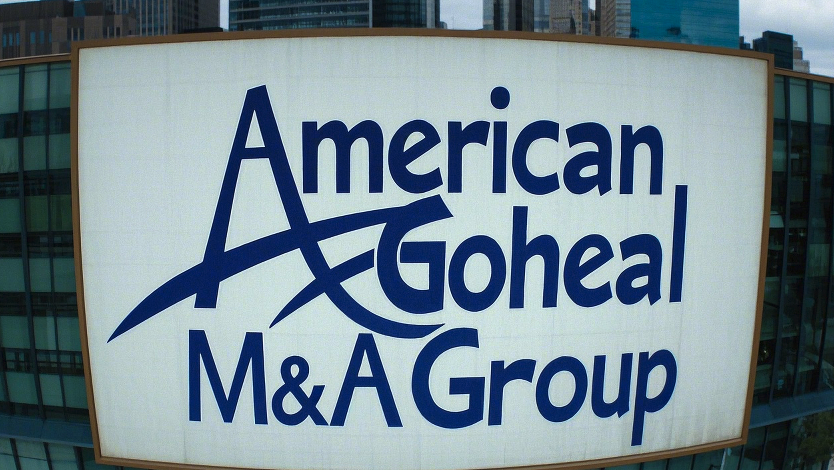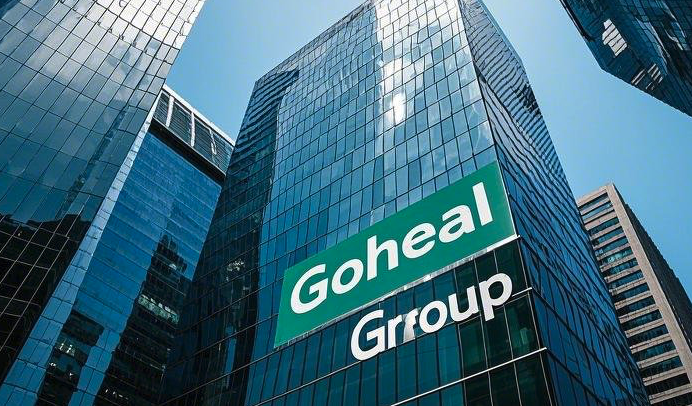"You can't use up all your power, you can't enjoy all your blessings, you can't take advantage of all your advantages, and you can't use up all your intelligence." The stock market is like a battlefield, and control is like a seal. Whoever holds the power controls the world. But in today's M&A arena, more and more "shining" acquisitions of control rights seem to be a surge in market value, but in fact they are a "hollowing out" capital illusion. Behind a seemingly glorious market value leap, there may be frightening corporate idleness, management vacuum and cultural mismatch.
Goheal observed a warning phenomenon in many practical operations and due diligence: Many listed companies have not achieved "rebirth" after completing the change of control rights, but have fallen into a "hollowing out" crisis of strategic stagnation, organizational idleness and talent loss. It's like a luxury cruise ship with a new captain, but it has lost its direction and power.

American Goheal M&A Group
1. Is the surge in market value real value creation or a "market dream rate" illusion?
We cannot deny that the "market value miracle" brought about by the acquisition of control rights in the short term has a strong visual impact. As soon as the announcement came out, the market frantically interpreted the "imagination premium" of the new owner: Is this the capital operation of "PE+listed company"? Is it the perfect marriage of "shell+industry"? Or is it the implementation of the strategy of "state-owned capital taking over"?
But the truth is often hidden in the invisible corners of the financial report. A common script is: the new shareholder obtains the controlling rights through the agreement transfer, and the market value rises accordingly; however, the actual operation has not improved, and even the old team has all left, and the new team has failed to run-in, leaving behind a mess and the silence of capital.
Goheal once participated in the due diligence of an A-share main board company. The market value of its control transfer in the early stage rushed from 1.8 billion to 5.2 billion in just one month. But a year later, the company's main business revenue fell by 34%, the core products stopped updating, 5 of the 6 original management members resigned, and the secondary market stock price fell back to 1.4 billion-not even worth the original "original price".
Market value does not come out of thin air. It should be the discount of cash flow and strategy, not the expansion of stories and the illusion of changing leaders. Excessive superstition about the short-term "market value rise" brought about by the transfer of controlling rights is precisely the starting point for many companies to become "hollow".
2. Why can't the change of controlling rights bring real control?
The acquisition of controlling rights is often described as "political change at the shareholder level", but behind this "palace drama" is an underlying fact that is often overlooked - the real control of the company is often not in the controlling rights themselves, but in the deep grasp of the organizational system and resource allocation capabilities.
Especially in the era when PE institutions, industrial capital, and local state-owned assets frequently become the new owners of controlling rights, new shareholders often face the illusion of "getting on the bus and steering". They hold equity, but may not be able to arouse organizational loyalty; they have capital, but do not understand the industrial path; they have grand plans, but no execution team. This situation is common in Goheal's projects in recent years.
The acquisition of controlling rights does not mean the realization of control. Especially when there is a clear strategic deviation between the new and old shareholders, or when the cultural identity is extremely low, the company will quickly fall into "organizational loss of control": the original management "lies down" or jumps ship, the middle-level team "watches the show", and the grassroots employees "grab the land" to find their own way out. The capital party has become an "island" sitting in the boardroom and speaking without anyone agreeing.
What's worse is that some acquirers lack long-term business intentions and only aim at "shell resources + expected game". After obtaining the controlling rights, they fall into a "stagnation of operation" mode. Project decisions are delayed, management mechanisms are idle, and incentive systems are in name only. The company eventually becomes a "power arena" for shareholders to play games, rather than a market-oriented business entity.
3. How to lock the corporate body in the hidden chain of hollowing out?
In our opinion, the "hollowing out" of enterprises is not achieved overnight, but a systemic pathology caused by the triple imbalance after the acquisition of control.
The first level is the power vacuum. When the original founder completely withdraws with the halo and memory, but the new management team has been slow to establish prestige, the company will fall into a state of being ownerless. In a manufacturing acquisition case that Goheal participated in, the new shareholder replaced three CEOs within three months of taking office, and a trust crisis of "no one trusts and no one cares" gradually formed in the organization.
The second level is strategic drift. The new owner often tries to "rebuild" the company, but lacks a deep understanding of the original path and is prone to "self-indulgent strategic planning": cutting off the original main business and making "transformation commitments" that are out of touch with reality. As a result, the investment and benefits are seriously mismatched, leading to the exhaustion of resources.
The third level is incentive rupture. The original incentive mechanism of the acquired company (especially options, dividends, etc.) is often "fused" after the acquisition, and the new mechanism has not been implemented or even unattractive, resulting in a large number of losses in the original team. When analyzing more than a dozen failed cases, Goheal found that nearly 70% of the executives of the control acquisition projects were concentrated within 6 months after the acquisition.
The fear of hollowing out is that it does not always have immediate effects, but quietly devours the vitality of the enterprise. A company that was originally profitable and efficient may become a shell company with only financial reports and no soul one year after the transfer of control.
4. Who is reconstructing? Who is idling? The key lies in the governance design after the acquisition
Can we avoid hollowing out? Of course. But the premise is that we do not regard "acquisition of controlling rights" as the end, but as the starting point of governance reshaping.
In Goheal's view, the "second entrepreneurship" stage after the acquisition of control requires at least three key actions:
First, build a "new and old mixed" governance team and establish a 3-6 month cultural transition period. It is not to clean up the original team blindly, but to build a stable combination of "new blood + old ministers". Especially in the core business and customer relationship, the original team is often still an irreplaceable bridge.
Second, design a "cultural integration mechanism" in advance, such as setting up a cultural advisory team, a regular joint decision-making meeting mechanism, and an adaptive KPI transition plan to avoid trust rupture due to sudden changes.
Third, implement executable strategic commitments. It is not a slogan, but a "three-step" plan centered on cash flow to ensure that the organization knows what to do next, how to do it, and for whom to do it.
We have seen in many successful cases that only by truly completing the closed loop of power succession, cultural embedding and strategic transformation can the acquisition of control rights get out of the shadow of "performance-type acquisition" and truly bring about the growth of corporate value.
5. In the end: What should we care about besides market value?
The change of control rights has never been just a transfer of shares, but a process of reshaping power, culture, strategy and trust. Goheal wants to say that those investors who only look at the market value increase in the announcement title and those acquirers who only do transaction structure but not governance planning are pushing listed companies step by step into the abyss of hollowing out.

Goheal Group
Today's market value surge may be tomorrow's value sinking. Is the acquisition of control rights the beginning of value creation or the prelude to "empty shell"? What do you think? Welcome to share your views and experiences in the comment area.
——We at Goheal are not only concerned with “buying”, but also with “living after integration”.
[About Goheal] Goheal is a leading investment holding company focusing on global M&A holdings. We are deeply involved in the three core business areas of acquisition of listed company control, M&A and restructuring of listed companies, and capital operation of listed companies. With our profound professional strength and rich experience, we provide enterprises with full life cycle services from M&A to restructuring and then to capital operation, aiming to maximize corporate value and achieve long-term benefit growth.